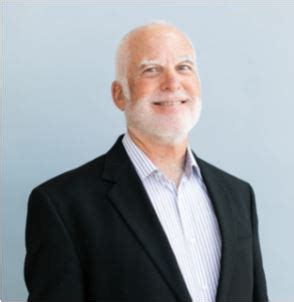A Quote by Mike Mason
Real love is always fated. It has been arranged before time. It is the most meticulously prepared of coincidences. And fate, of course, is simply a secular term for the will of God, and coincidence for His grace.
Related Quotes
But if fate won’t be denied...if it’s set, how could there be infinite possibilities? (Kat) Only certain aspects are fated. The outcome isn’t. It was fated that Sin would loose his godhood. The means and what followed were determined by free will. Free will is that one scary variable that sets so much into motion that no one, not even I, have control over. (Acheron)
Loving a holy God is beyond our moral power. The only kind of God we can love by our sinful nature is an unholy god, an idol made by our own hands. Unless we are born of the Spirit of God, unless God sheds His holy love in our hearts, unless He stoops in His grace to change our hearts, we will not love Him... To love a holy God requires grace, grace strong enough to pierce our hardened hearts and awaken our moribund souls.
The heart that delights in God and longs only to see His glory advance will seldom be conscious of sacrifice. God in His wisdom asks that we first love Him and then live in keeping with that core value. He does not want His people to think of what they do as sacrificial, even though from the world's point of view it may be just that. Gratitude for grace of God will always be found near the center of the Biblical Christian's most powerful motivations.
I receive your love and I give you mine. Not the love of a man for a woman, not the love of a father for a child, not the love of God for his creatures, but a love with no name and no explanation, like a river that cannot explain why it follows a particular course, but simply flows onwards. A love that asks for nothing and gives nothing in return; it is simply there. I will never be yours and you will never be mine; nevertheless, I can honestly say: I love you
Prayer is the practice of drawing on the grace of God. Don't say, "I will endure this until I can get away and pray." Pray now - draw on the grace of God in your moment of need. Prayer is the most normal and useful thing; it is not simply a reflex action of your devotion to God. We are very slow to learn to draw on God's grace through prayer.
If a person has grasped the meaning of God's grace in his heart, he will do justice. If he doesn't live justly, then he may say with his lips that he is grateful for God's grace, but in his heart he is far from him. If he doesn't care about the poor, it reveals that at best he doesn't understand the grace he has experienced, and at worst he has not really encountered the saving mercy of God. Grace should make you just.
Our work is not to save souls, but to disciple them. Salvation and sanctification are the work of God's sovereign grace, and our work as His disciples is to disciple others' lives until they are totally yielded to God. One life totally devoted to God is of more value to Him than one hundred lives which have been simply awakened by His Spirit. As workers for God, we must reproduce our own kind spiritually, and those lives will be God's testimony to us as His workers. God brings us up to a standard of life through His grace, and we are responsible for reproducing that same standard in others.
It has been said that in the New Testament doctrine is grace; and ethics is gratitude; and something is wrong with any form of Christianity in which, experimentally and practically, this saying is not being verified. Those who suppose that the doctrine of God's grace tends to encourage moral laxity are simply showing that, in the most literal sense, they do not know what they are talking about. For love awakens love in return; and love, once awakened, desires to give pleasure.
Do we not see God at work in our circumstances? Dark times are allowed and come to us through the sovreignty of God. Are we prepared to let God do what He wants with us? Are we prepared to be separated from the outward, evident blessings of God? Until Jesus Christ is truly our Lord, we each have goals of our own which we serve. Our faith is real, but it is not yet permanent. And God is never in a hurry. If we are willing to wait, we will see God pointing out that we have been interested only in his blessings, instead of God Himself.
I will love you like God, because of God, mighted by the power of God. I will stop expecting your love, demanding your love, trading for your love, gaming for your love. I will simply love. I am giving myself to you, and tomorrow I will do it again. I suppose the clock itself will wear thin its time before I am ended at this altar of dying and dying again. God risked Himself on me. I will risk myself on you. And together, we will learn to love, and perhaps then, and only then, understand this gravity that drew Him, unto us.
Grace is more than mercy and love. It super-adds to them. It denotes, not simply love, but the love of a sovereign, transcendent Superior. One that may do what He will. That may wholly choose whether He will love or no. Now God, who is an infinite Sovereign, who might have chosen whether ever He would love us or no; for Him to love us, this is Grace.
God takes the most eminent and choicest of His servants for the choicest and most eminent afflictions. They who have received most grace from God are able to bear most afflictions from God. Affliction does not hit the saint by chance, but by direction. God does not draw His bow at a venture. Every one of His arrows goes upon a special errand and touches no breast but his against whom it is sent. It is not only the grace, but the glory of a believer when we can stand and take affliction quietly































